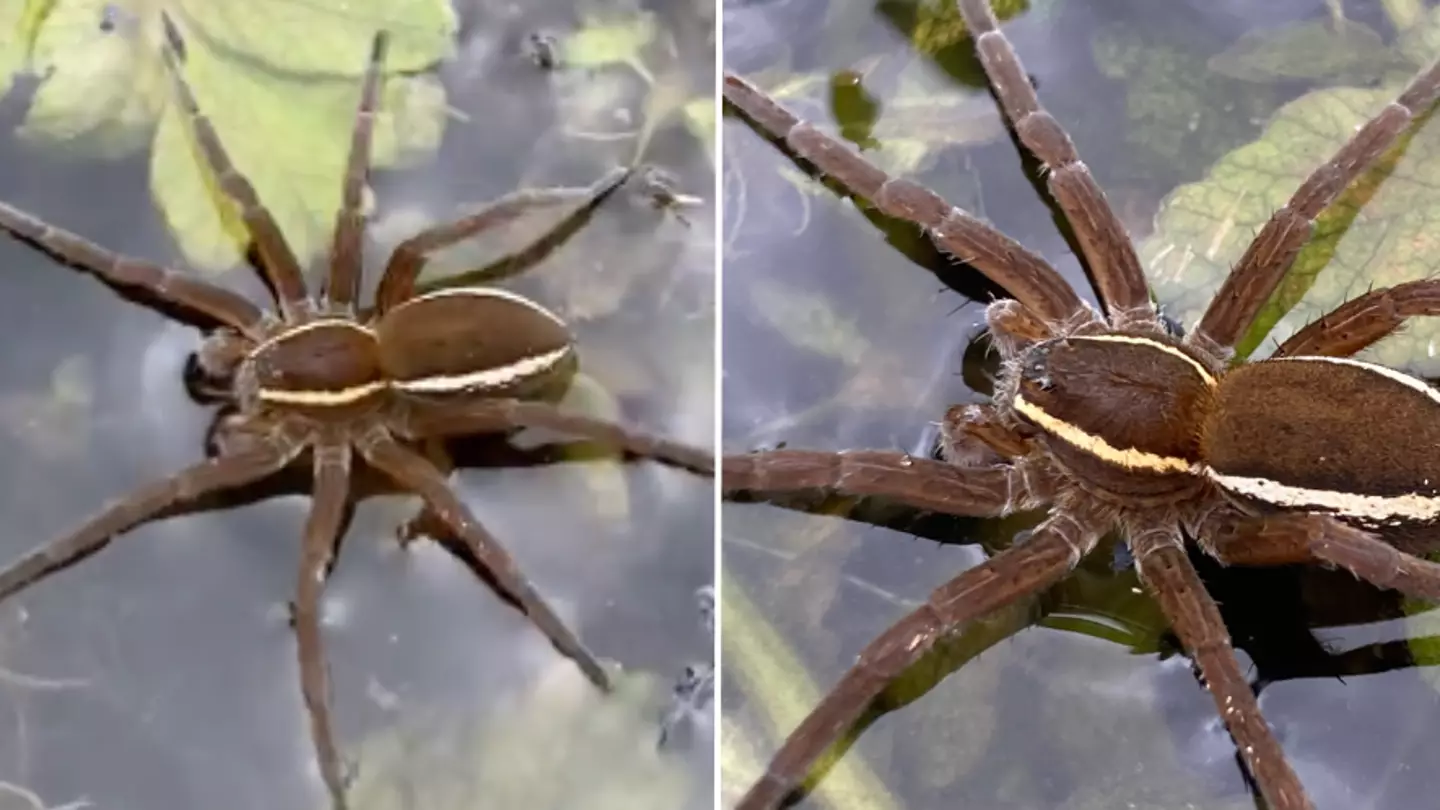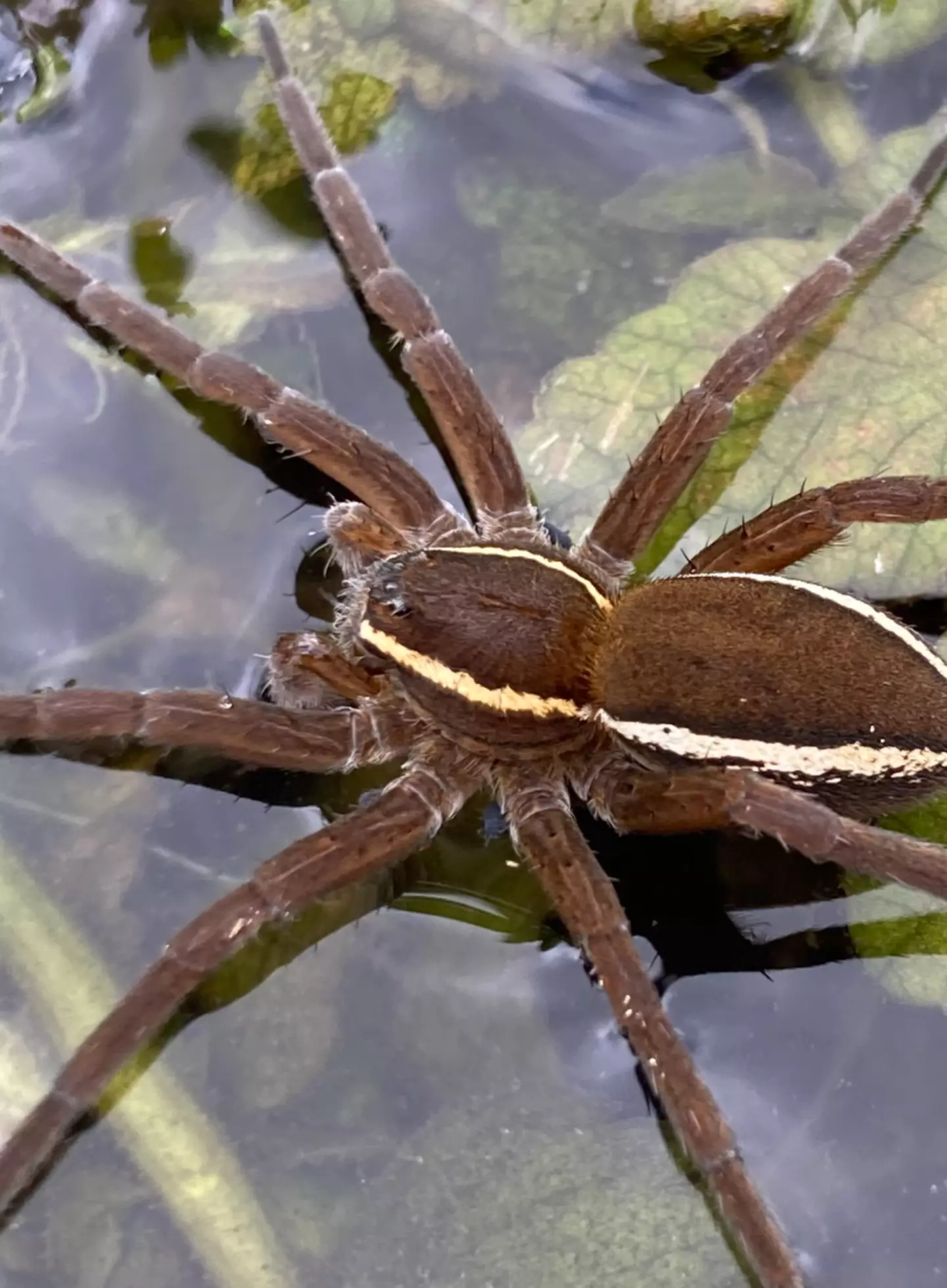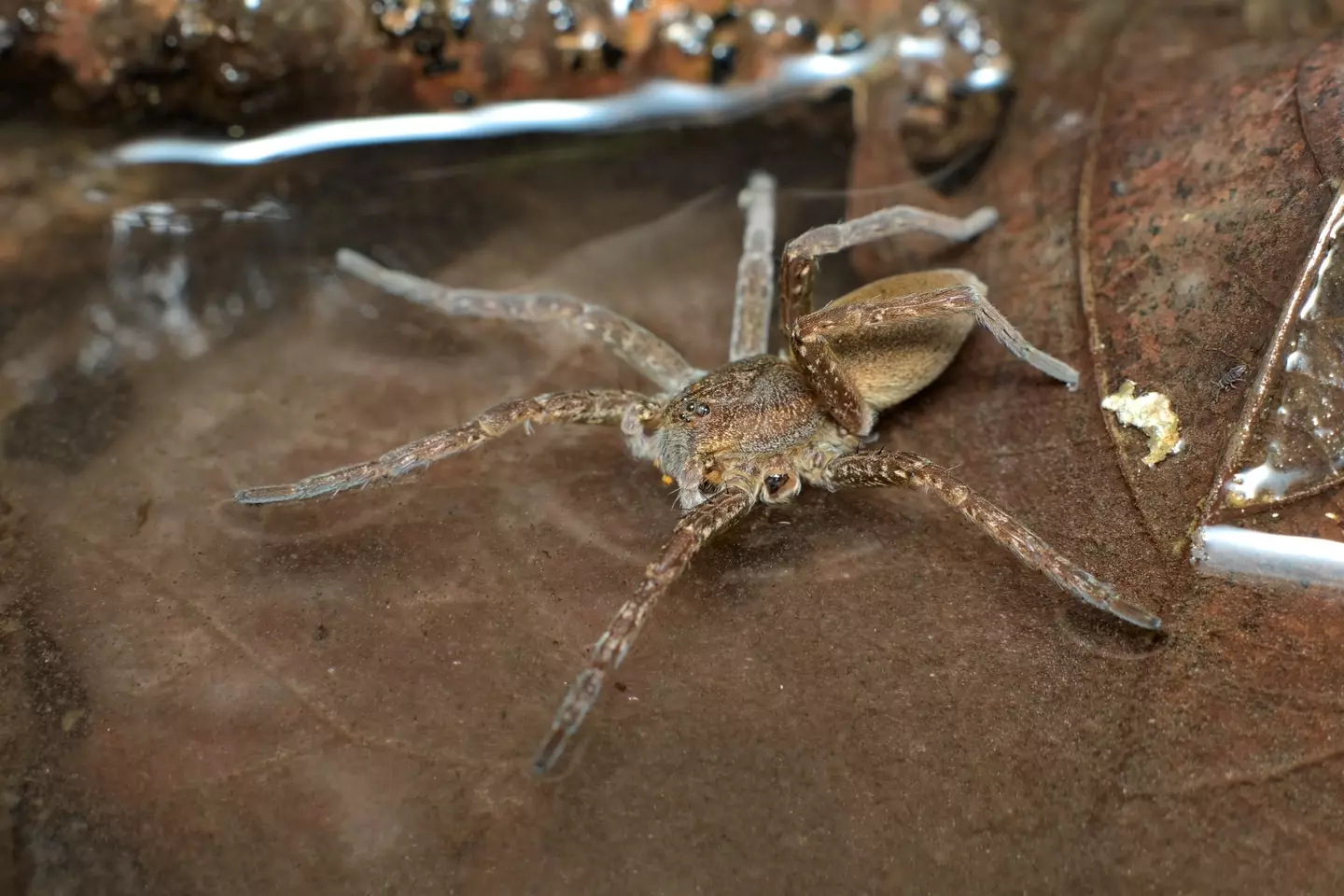
Anyone with arachnophobia won't be too happy to find out that 'rat-sized' spiders that 'live off fish' will be returning to the UK, having made a comeback from the brink of extinction.
The giant creepy-crawlies nearly went extinct back in 2010 when only a handful remained after humans sadly destroyed their wetland habitats.
But the fen raft spiders are now making a comeback, according to the RSPB.

Advert
In fact, recent conservation efforts ran by the RSPB have meant that the spiders are set to have their best year on record.
The Norfolk and Suffolk Broads nature reserves alone have an estimated total of 3,750 female spiders.
And as for the wider UK?
Well, the charity's most recent survey estimates the total number of breeding females now reaches a whopping 10,000.
Advert
The spiders in question are distinguishable by their brown or black body with white or cream stripes along the sides.

They are also the largest of the UK’s 660 native species of spider with a span of up to nearly three inches - around 8cm.
Additionally, fen raft spiders can impressively spin a web as
Advert
The spider can spin a web as large as up to 30cm and can grow to the size of a man's hand.
Their diet includes damselflies, dragonfly larvae and even fish and tadpoles - as well as other spiders.
But don't worry too much as the semi-aquatic critters aren't at all venomous and are also 'fairly shy'.
Tim Strudwick, the reserves manager for the RSPB in the mid-Yare valley in Norfolk said via MailOnline: "We just don’t know how far they are going to spread and that’s what’s exciting, seeing which bits of habitat they take over next."
Advert
He added: "The fen raft spider is one of the UK’s rarest invertebrates and we are proud of the role our reserves and teams have played in its recovery.
"These spiders have an important role in maintaining the rich aquatic diversity found in the grazing ditches on our reserves. The females are impressive in size, but also beautiful – they are truly special to see."
RSPB ecologist, Jane Sears, who was also involved in the fen raft spider conservation, added: "The RSPB has played an important role in the reintroduction of these spiders and means we must continue to restore, manage and protect the wetland habitats where the fen raft spider thrives to ensure the future of not just this species, but many others too."